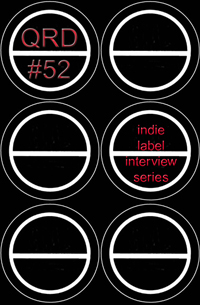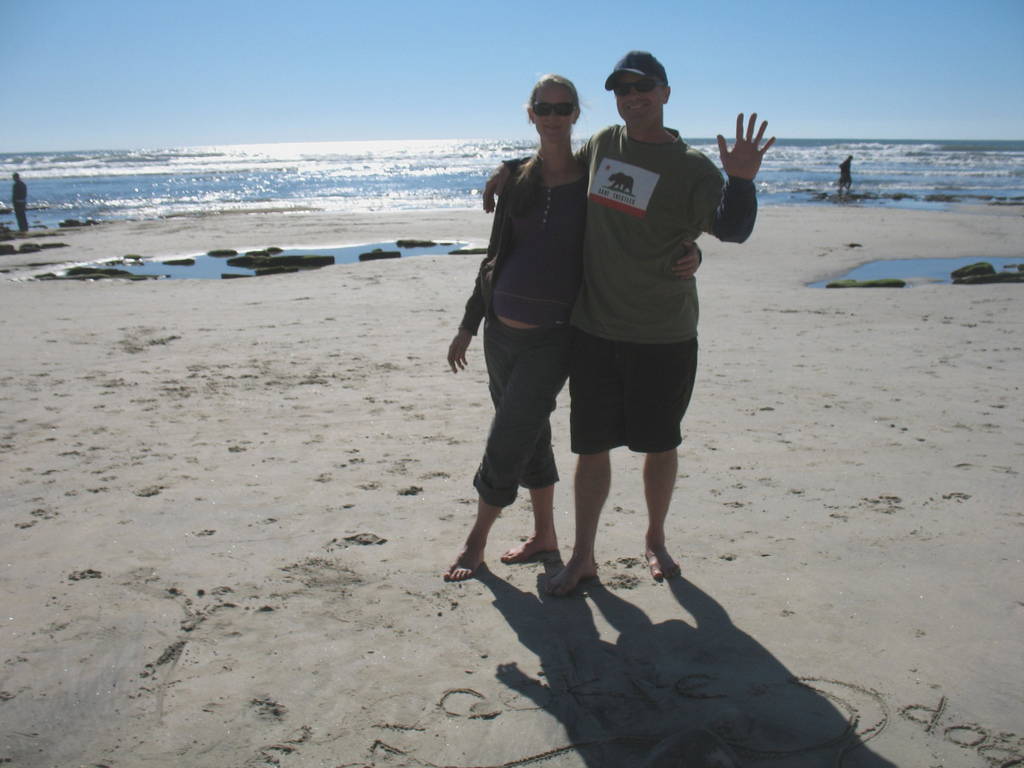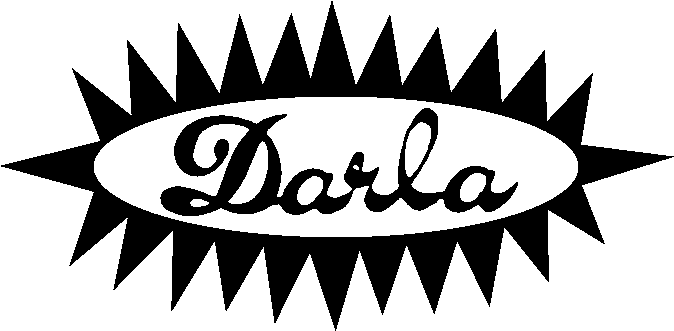
March 2011

Name: James
Agren
Label: Darla
City: Vista, CA.
Artists Roster: Robin Guthrie, Harold Budd, Clive Wright, Keith
Canisius, Modern English, Manual, I Am Robot & Proud,
Japancakes, Sweet Trip, others.
Websites: www.darla.com
QRD – When & why did you start your label?
James – I started the Darla label, mail order, & wholesale
distribution with my wife Chandra in 1994 as a patron of the arts in
order to provide a safe & sane avenue to sell direct to mail
order customers, retailers, & other distributors worldwide. I
was ready to start my own thing after almost 10 years working for
others & learning many aspects of the business.
QRD – Where did you get the money to finance your first few releases?
James – Savings from my previous place of employment.
QRD – How many releases have you put out?
James – 244 on the Darla label alone. Many 1000s beyond that if you
count manufactured & distributed titles.
QRD – How many releases would you like to do a year?
James – Ideally, only one big one, however, we generally do 10-12 a
year on the Darla label.
QRD – How many hours a week do you work on the label & how many
would you like to?
James – We try to keep it down to five days a week now. It used to be
all consuming, but that’s not healthy. Gotta keep the balance.
QRD – What are the fun &/or rewarding parts about running a
label?
James – I’m most honored to work for artists that I have admired since
I was in my 20s or younger & provide them with a solid home for
their work. I just love being able to send them big checks.
QRD – How have your motivations for having a label changed?
James – I don’t know that they have really. I was already fairly mature
(32) when I started the business. It began & has remained a
common sense, no nonsense endeavor. The bottom line is providing as
much income as possible to the artists & labels. We’re not here
to satisfy some juvenile rock ego fantasy. Most of what we do is
unglamorous, administrative, packing & shipping work, &
that’s just fine. I just want to provide well for partners &
family.
QRD – What do you feel is the biggest waste of your time running the
label?
James – I don’t allow my time to be wasted.
QRD – What are some labels you admire or feel a kinship to?
James – Factory, Merge, early 4AD, Creation, Touch & Go, early
Sub Pop.
QRD – What other work experiences prepared you to have a label?
James – All work experience is valuable. A foundation of learned
humility, cooperation & how to avoid being taken advantage of
can come from a variety of diverse work experience, therefore, all
previous work experience has contributed well to my success in running
the label, online store, & wholesale distribution business. I
have been a landscaper, house painter, construction laborer, busboy,
waiter, cashier, prep cook, barista, bar back, bartender, doorman, club
dj, college radio dj, booking assistant, retail marketing manager,
college radio promotion person, administrative assistant, a&r
assistant, & production assistant. All through my teens
& into my 30s I went out to see bands, often every night of the
week, but that’s another story.
QRD – What makes you label special & unique?
James – Its diversity of artists, beauty, simplicity, sustainability.
QRD – How has your physical location effected your label?
James – We work out of a 1000 square foot RV barn behind our home out
in the sage & chaparral covered hills of North San Diego
County. It’s a ways away from where the action is. It’s peaceful
& allows us to focus & work without distraction.
Everyone is online now anyway. One no longer must be in the big city to
do this work. I’m in touch with partners all over the world every day.
After, I can chill out & enjoy family time here where it’s
quiet & the air smells good. This helps keep my batteries
charged.
QRD – Do you enjoy music as much now as you used to & how has
running a label effected how you listen to/hear music?
James – I’m often exhausted by the enormous amount of mediocre music
one must sort through & process, however, there is still always
some sublime satisfaction provided by a clearly unique artist. I just
wish there were more of them & they sold more. When I’m asked
this question I usually joke that I still enjoy music, so long as it’s
Christian. Really though, I’ll never forgot the moment I first received
My Morning Jacket’s At Dawn & sat down to listen to it or when
Mr. Guthrie came over & we sat down to listen to Bordeaux, the
new Robin Guthrie & Harold Budd record. Those are the moments
that make all the digging worthwhile.
QRD – What’s your demos policy?
James – I give almost everything a few seconds.
QRD – How do you find out about new artists for your label?
James – I seek them out via friends & partners. They find me
via recommendation.
QRD – How do most fans find out about your label?
James – Internet, I guess.
QRD – What’s been your biggest selling release & why do you
think it was?
James – My Morning Jacket -At Dawn. It connects with the most people. I
believe it’s their best record.
QRD – What release that you’ve done was the most important &
special to you personally?
James – At one time My Morning Jacket were most important &
special to me. I’m now getting a lot of satisfaction working for Robin
Guthrie & Harold Budd who have made records together &
solo for Darla. Harold is in the studio this week recording the string
quartets he’s written with an actual string quartet & Harold on
piano. I’m really looking forward to hearing the results!
QRD – What are some things that make you want to work with a band?
James – The artist sounds unique. The artist is sane. The artist is
motivated to work.
QRD – What are some things that would make you stop working with a band?
James – Insanity. Substance abuse. Personal abuse. Lying. Insufficient
sales.
QRD – What is the thing all releases on your label have in common?
James – Beauty.
QRD – How involved are you with a band for acting as a producer as far
as hearing demo ideas or selecting tracks to be on a release or mixing
& mastering?
James – Only as needed & to the extent the artist wants the
input.
QRD – How involved do you like to be in the artwork design for a
release?
James – I’ve enjoyed designing the cover art for a good number of our
releases, but I don’t need to be so involved unless there’re issues
that need correction.
QRD – How long is it from when an artist delivers an album to you until
release date & why?
James – It varies. Ideally, the artist delivers the record within a
reasonable period of time & I then have at least eight weeks to
do set up, let the release info disseminate through the supply chain
& collect as many pre-orders as possible.
QRD – If a band breaks up between the recording of a release &
the release date, how does that effect what you do?
James – Gee. Depends. Did they finish making the record? It would have
some effect that’s for sure.
QRD – What do you wish bands on your label would do?
James – Sell more records.
QRD – What’s a record you’d like to put out that you’ll never be able
to?
James – Never say never.
QRD – If you really like a band, but aren’t sure you could sell many
copies of their record; what do you do?
James – The question isn’t if I can sell... it’s if the record will
sell. If I really like the band & the band wants to work
together we find a way. CD manufacturing prices are coming down.
Download only releases are not preferred, however, it is an economical
option.
QRD – How is financing of a release split between artists & the
label?
James – Depends. It’s different in every case.
QRD – How do you split profits from a release between artists &
your label?
James – We offer a 50/50 profit split on sales & 75/25
artist/label split on sync license income.
QRD – Do you have written contracts with your bands or handshake deals?
James – Written contracts only.
QRD – Do you take a cut of a bands’ publishing?
James – No, our deals are for master rights only, however, I can see
doing publishing administration at least & perhaps working more
in the publishing field in the future.
QRD – How important is it to you to have touring acts on your roster
& what do you do to encourage it?
James – Well, our artists almost never tour, however, sales can go up
dramatically when they do, so I’m always cautiously optimistic when a
band begins planning a tour. Robin Guthrie is doing two weeks of US
dates co-headlining with Brendan Perry this May.
QRD – Do you handle promotions in house or hire out & why?
James – I would love to find a trustworthy promotions partner, but
until then I will continue to do all promo in house. Record promo is
the biggest scam in the business.
QRD – How do you maintain contact with your fanbase?
James – Email, Facebook, Twitter, www.darla.com.
QRD – Do you have intern & street team programs & if
so, how do they operate?
James – We welcome applications to intern.
QRD – How big of a staff do you have & how big of one do you
need?
James – We are a two-person husband & wife operation. Then
there’s Nicolas, our layout person. We’ve had a hired third &
sometimes a fourth person here for about half of our 17 years in
business & found it too often more trouble than it is worth.
Ideally, I’d like to have a manager who was experienced &
invested via her/his own label & income percentage derived from
sales to run things so I could go to Hawaii for months at a time. Where
are you?!
QRD – What do you do to build relationships with record stores?
James – Provide them with records that they can sell, promos, posters,
buttons, guest list + 1, Darla t-shirts!
QRD – What do you do to build relationships with radio stations?
James – I send CD promos to radio stations & offer guest list.
QRD – What do you do to build relationships with magazines &
websites?
James – Send CD & download promos, etc.
QRD – What do you do to build relationships with bloggers?
James – Same as above.
QRD – Do you view advertisements as a way to generate interest
& revenue or more as a way to financially support magazines
& websites you like?
James – I like the old saying, “Half of all money spent on advertising
is wasted. You just never know what half.”
QRD – What is the job of your distributors?
James – Sell my records & pay me for them. Thank you!
QRD – How do you decide how big the initial pressing of a release
should be?
James – How many can we reasonably expect to sell within the near term?
What’s the sales history? What’s this new record like?
QRD – What percentage of a pressing do you use for promotions?
James – Depends... though no more than 10% to 15% if I can help it.
QRD – Do you sell merchandise other than the music (t-shirts, etc.)?
James – Yes.
QRD – Do you sell music that is not on your label?
James – Yes.
QRD – How has running a label effected your own artistic career?
James – Art & music are the two fields I have done best in all
my life. I see the business as my art. I see my other pastimes as my
art too. It’s just a process & progression from painting
& playing guitar & on to the next steps &
developments.
QRD – Ideally, would you release your own material?
James – Maybe, but not at present. I’m satisfied doing what I do now.
QRD – What do you do to try to build a sense of community within your
roster?
James – Attract the like-minded.
QRD – What’s your most common conversation with bands as far as
balancing artistic integrity & financial viability?
James – This is really more a perceived issue than a real issue. Don’t
take yourself too seriously.
QRD – How often do you look at your “return on investment” &
adjust your business model?
James – Whenever necessary.
QRD – Do you worry about search engine optimization & website
traffic?
James – Worry, no.
QRD – What have you done to cut costs over the years?
James – We have always been very cost conscious. That’s why we work out
of a barn that we own on land we live on instead of leasing space like
others do. Our low overhead provides security, convenience, &
freedom.
QRD – Do you think the album format is dead?
James – No.
QRD – Do you think the return of vinyl & cassettes is a fad?
James – Partially. Vinyl accounts for less than 1% of all music sales.
Contrary to popular belief CD is still the dominant format.
QRD – Is it important to have physical releases over digital ones or
does it not matter?
James – Yes. A physical release is most important.
QRD – What do you think of ultra-limited runs of releases (less than
100 discs)?
James – Hate them. Unsustainable business model. If the artist is
popular it just pisses off everyone who wants them who wasn’t able to
buy one before it sold out.
QRD – What do you think of “print on demand” discs?
James – Whatever.
QRD – How much content do you feel should be available free to fans?
James – However much the rights holder decides.
QRD – What do you do about people distributing your music without
financial compensation (piracy & file trading)?
James – I burn them alive.
QRD – What’s something you see other labels do that you think of as
borderline unethical?
James – You’d be surprised how many labels don’t pay their artists
& don’t even know how to do accounting properly. It’s really
awful. Excessive spending is also problematic.
QRD – What changes in things would cause you to stop your label?
James – Nothing.
QRD – What would you suggest to someone starting a label today?
James – Do your research first.
QRD – Where do you think money is currently most available to
labels/musicians & where in the future?
James – It’s different for everyone. It’s not one size fits all.
QRD – Why do you think labels are still important to artists?
James – Because artists need a label to do the more mundane &
administrative side so they can better spend their time doing the
creative work.
QRD – Music has had different hotspots on the internet over the years
(newsgroups, MP3.com, MySpace, LastFM), but with MySpace’s decline,
what do you see as the place where “normal” people go to find out about
& get excited by new music?
James – I don’t know, but I’m hopeful that Google will stop enabling
file sharing & open their own music store.
QRD – In 20 years what do you think/hope your label will be
known/remembered for?
James – a solid rock foundation & bright spot for many uniquely
talented artists & labels to showcase their work.
QRD – Anything else?
James – Peace & love. Aloha!








